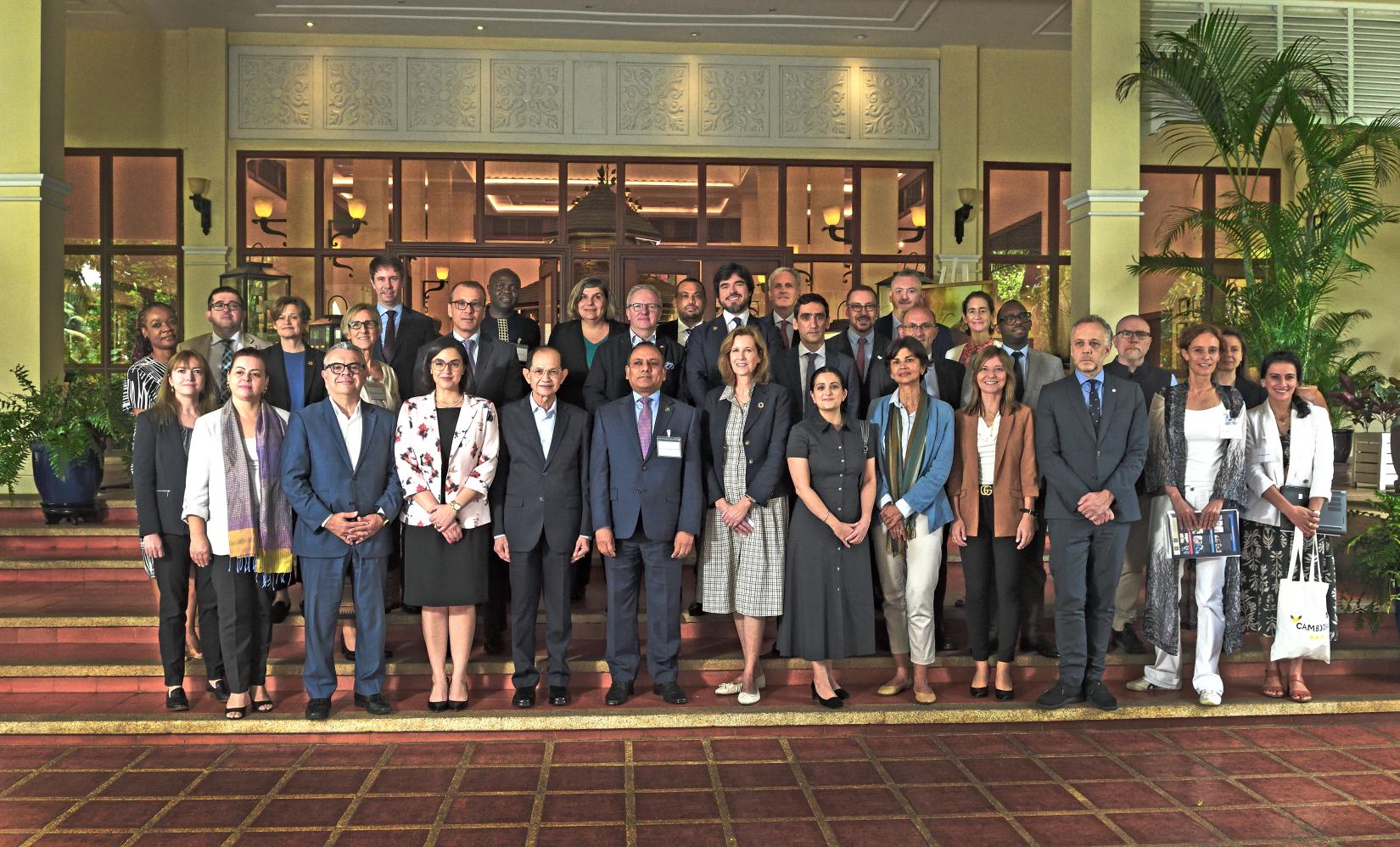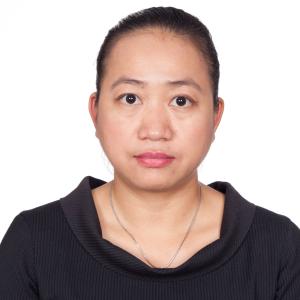Executive Boards of six United Nations entities conclude joint field visit to Cambodia
04 November 2024
Phnom Penh, 4 November 2024 - A group of 17 delegates representing Member States on the Executive Boards of UNDP/UNFPA/UNOPS, UNICEF, UN-Women and WFP concluded a five-day joint field visit to Cambodia on Friday. The visit aimed to deepen the Executive Boards’ understanding of the United Nations’ work - and, more specifically, the work of the six entities - in the country and how the United Nations is supporting the Royal Government of Cambodia in achieving its national development priorities.

The delegation divided into three groups to visit various provinces, gaining first-hand insights into the entities’ joint efforts in supporting Cambodia’s ambitions in progressing development gains in the country.
The first group travelled to Preah Vihear Province to observe entities’ work in building resilient health and education systems, including in water and sanitation and malaria control. The delegates visited the Koh Ke Health Centre to learn about maternal and child health initiatives, met with frontline workers addressing gender-based violence and child protection and explored a private sector model for improving water access. Board Members also visited the Pro Me Health Center and the Sre Preang Village where they had the opportunity to observe local interventions in fighting against malaria and improving access to primary health care.
A second group journeyed to Banteay Meanchey, Battambang and Pursat Provinces to witness the United Nations’ impact in demining, disaster risk management and social protection. The delegation observed demining activities and met with communities benefiting from land clearance. The delegates also visited the largest rehabilitation center and a school, where they learned about landmine victims’ assistance and the school feeding programme. Delegation members also had the opportunity to engage with local communities’ benefiting from social protection initiatives in Cambodia and heard first-hand accounts of their experiences.
The third group focused on gender equality, inclusion, and youth empowerment in Phnom Penh. Delegates engaged with a diverse range of civil society organizations, including women's rights groups, disability and indigenous organizations, LGBTIQ+ groups, and youth organizations. Discussions centred on progress, challenges, and opportunities for strengthened collaboration between the UN and local organizations to leave no one behind in Cambodia’s development.
They also visited a women’s crisis center to learn about essential services provided to women and girls at risk and gain a deeper understanding of the challenges and successes in combating gender-based violence and human trafficking in Cambodia.
Additionally, the members of the Executive Boards observed the entities’ initiatives at an innovation fair, including digital solutions for education, poverty mapping using AI, and climate resilience.
Throughout their visit, the delegation had the opportunity to engage with development partners and high-level government officials, including H.E. Samdech Thipadei Hun Manet, Prime Minister of Cambodia together with senior members of his cabinet, to further discuss their experiences in Cambodia during the visit as well as the Royal Government of Cambodia’s development priorities and how partnerships with the United Nations can support the further achievement of these priorities. The delegation commended the Royal Government of Cambodia and the Prime Minister’s vision, commitment and significant efforts in ensuring Cambodia’s graduation from Least Developed Country status by 2030.
The members of the Executive Boards acknowledged the support that the United Nations, and, more specifically, the six entities they govern - UNDP, UNFPA, UNICEF, UNOPS, UN-Women and WFP - provide to the achievement of transformational change at scale in Cambodia, and how the strong collaboration and joint efforts among the entities is instrumental to achieving this change.
They further expressed their commitment to ensuring, in their role as members of the governing bodies of the six entities, that the organizations further contribute to accelerating the pursuit of the Sustainable Development Goals to the benefit of all people in Cambodia, with no one left behind.


















